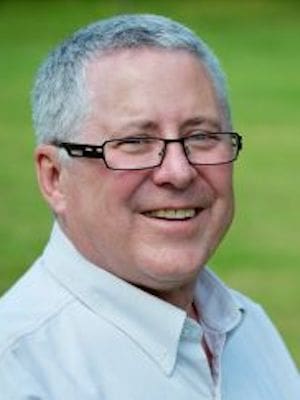Action and contemplation must be intertwined for Christians to effectively address issues facing our world.
I was reminded of this when I had the opportunity to participate in the A Rocha Canada national staff retreat last week.
It was inspiring to be introduced to a community of talented, young adults that cares for the planet.
These educated women and men, during prime years of career building, move intentionally to the margins of the economic world in order to live simply and compassionately.
They offer specialized service to God and humanity in teams working in areas of research, education, conservation, organic agriculture, fundraising, communications and hospitality.
As an observer, I sensed that the A Rocha community is sustained by a deep and gentle spirituality. We spent time together singing, reading, praying and listening for the Spirit. The experience was rich and transforming.
I regret fumbling a question posed about my personal spiritual practices. I tried to articulate that developing and practicing spiritual disciplines does not come easy for activists.
Activists are constantly on the move. Sitting quietly and engaging in reflection can seem like a waste of time because we instinctively measure our self-worth by the quantity of work achieved rather than by soul work.
The former can be measured with hard numbers. The latter is much more intuitive and elusive.
Some activists have the capacity to accomplish an impressive number of tasks in a given period of time. Organizations like us and reward us. We appear to be exemplary in our dedication and work ethic.
There is a shadow side. Activists find it difficult to deal with limitations and failure without attributing blame. We become frustrated and edgy.
It may be discovered that we have used relationships rather than built meaningful friendships.
We are insecure in nature, always wanting to prove our worth and to stand out from others. We may not support the team as much as promote ourselves.
These tendencies are taken into our spirituality. We pray for God to sustain our pace and to grant us favor. We take little time to listen or to reflect critically. There is almost no space for delight and sustained silence.
Activists may receive occasional insights into the madness and destructive nature of their compulsive behavior patterns. However, under stress, the default program of their lives consistently resets on activity.
As a reforming activist, I have come to believe that organizations and communities need us, at least to some extent.
We can make helpful contributions and our focus on results can be critical during intensive periods. But activists need others in the community who are not caught up in their compulsiveness.
In particular, there is a need for us to sit with people who are more naturally contemplative in nature.
They will remind us that accomplishments do not define us. They will warn us of the potential destructive nature of an obsession with higher targets and pride when goals are achieved.
Contemplatives tell us to be still before God. They encourage us to enter into the gifts of community. They help us to consider self-care as the other side of our public lives.
Contemplatives will become frustrated with us because we so often have to be protected from ourselves. The community loves us when people encourage us to delight in God, to read deeply from the Gospels, to open our hearts to the Spirit and to rejoice in creation.
I wish contemplation were more natural for those of us who are activists by disposition. I confess to wasted years chasing the wind. It would have been better to be more deeply rooted in God and the community of disciples.
At a late stage in life, I am trying to learn what Thomas Merton taught and exemplified. “Action and contemplation grow together into one life and one unity. They become two aspects of the same thing.”
Gordon King serves as Canadian Baptist Ministries’ resource specialist and is the author of “Seed Falling on Good Soil: Rooting our Lives in the Parables of Jesus.” A version of this article first appeared on his website and is used with permission.

